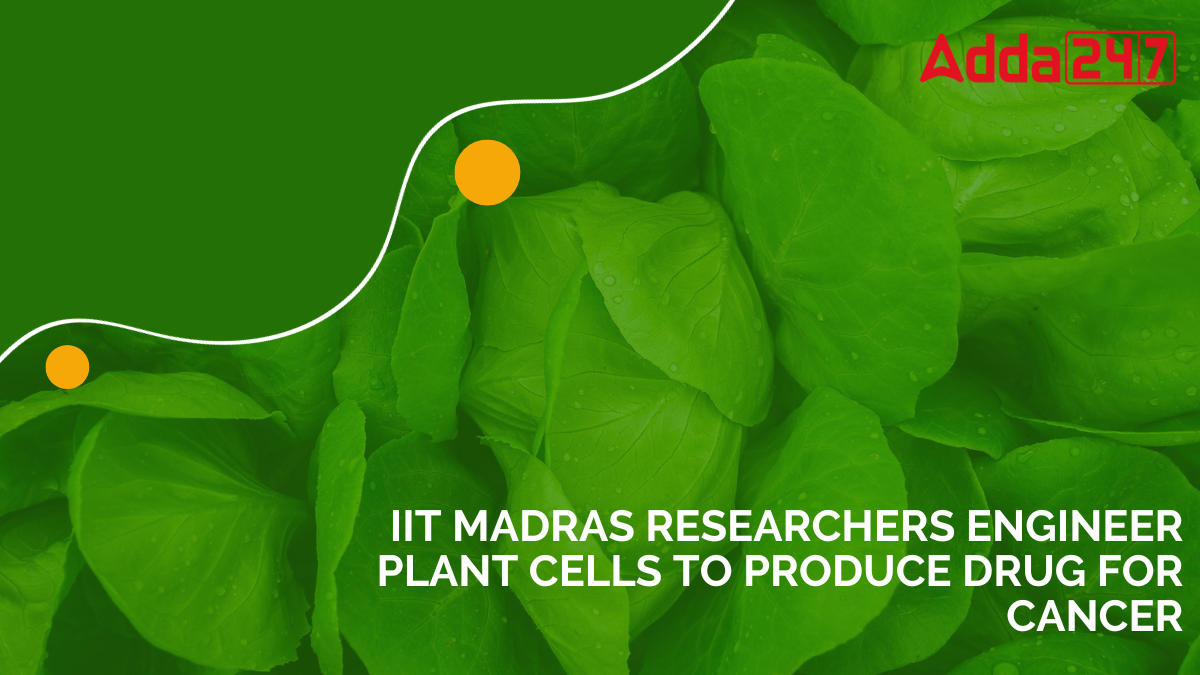Researchers from the prestigious Indian Institutes of Technology (IIT) Madras and Mandi have achieved a significant milestone in the field of biotechnology. They have successfully metabolically engineered plant cells to boost the production of the anti-cancer drug camptothecin (CPT).
Addressing the Challenge of Endangered Plant Conservation
CPT, traditionally extracted from the endangered plant Nathapodytes nimmoniana, has been a source of concern due to the plant’s declining population. The International Union for Conservation of Nature has red-listed this species, noting a 20% decrease in its population in the past decade. This development by IIT researchers comes as a critical solution to both medicinal production and plant conservation.
Innovative Research for Sustainable Production
In a groundbreaking research paper published in 2021, IIT Madras researchers identified a sustainable and high-yielding microbe alternative for CPT production. The Plant Cell Technology Lab at IIT Madras, using computational tools, developed a genome-scale metabolic model for N. nimmoniana plant cells.
The Team Behind the Innovation
This notable achievement was the result of collaborative efforts by a team of experts. Professors Karthik Raman and Smita Srivastava of the Biotechnology department at IIT Madras, along with Sarayu Murali and Maziya Ibrahim of the Computational Systems Biology Lab, and Shyam K. Masakapalli and Shagun Saini from the Metabolic Systems Biology Lab at IIT Mandi, spearheaded this research.
Funding and Recognition
The Science and Engineering Board (SERB) and the Department of Science and Technology provided essential funding for this research, which was published in the esteemed peer-reviewed journal, Frontiers of Plant Science.
Enhanced and Sustainable Drug Production
Principal investigator Smita Srivastava emphasized the integration of metabolic and bioprocess engineering principles as key to ensuring an enhanced and sustainable drug production. This approach is not just innovative but also addresses the growing market demand efficiently.
The Future of Commercial Viability
The research focuses on overexpressing certain genes in the plant to increase CPT production, analogous to widening roads to allow more traffic flow. The goal is to make this process commercially feasible within three to five years, thereby revolutionizing the way this vital cancer drug is manufactured.
Important Questions Related to Exams
Q1. What significant achievement was made by researchers from IIT Madras and Mandi?
(a) Development of a new cancer treatment
(b) Metabolic engineering of plant cells to increase CPT production
(c) Discovery of a new plant species
(d) Creation of a synthetic alternative to CPT
Q2. Which endangered plant is traditionally used for the extraction of CPT?
(a) Azadirachta indica
(b) Nathapodytes nimmoniana
(c) Ocimum sanctum
(d) Withania somnifera
Q3. What was the key discovery published by IIT Madras researchers in 2021 for CPT production?
(a) A new chemical synthesis method
(b) A sustainable and high-yielding microbe alternative
(c) A new plant hybrid
(d) An advanced extraction technique
Q4. Who were the lead researchers involved in this project from IIT Madras?
(a) Karthik Raman and Smita Srivastava
(b) Raghuram Rajan and Amartya Sen
(c) Venkatraman Ramakrishnan and C.V. Raman
(d) Anil Kakodkar and A.P.J. Abdul Kalam
Q5. Which department provided funding for this research?
(a) Indian Council of Medical Research
(b) Science and Engineering Board (SERB) and Department of Science and Technology
(c) Ministry of Health and Family Welfare
(d) Department of Pharmaceuticals
Q6. What principle did principal investigator Smita Srivastava emphasize as key to enhanced and sustainable drug production?
(a) Genetic modification
(b) Integration of metabolic and bioprocess engineering principles
(c) Use of artificial intelligence in drug synthesis
(d) Implementation of nanotechnology
Q7. What is the primary goal of this research in terms of CPT production?
(a) To completely replace traditional extraction methods
(b) To increase production by overexpressing certain genes
(c) To create a synthetic version of CPT
(d) To export CPT globally
Kindly share your responses in the comment section.



 Mankind Pharma Acquires Bharat Serums an...
Mankind Pharma Acquires Bharat Serums an...
 Discovery of Lithium Resources in Mandya...
Discovery of Lithium Resources in Mandya...
 What is Blue Screen of Death?
What is Blue Screen of Death?
